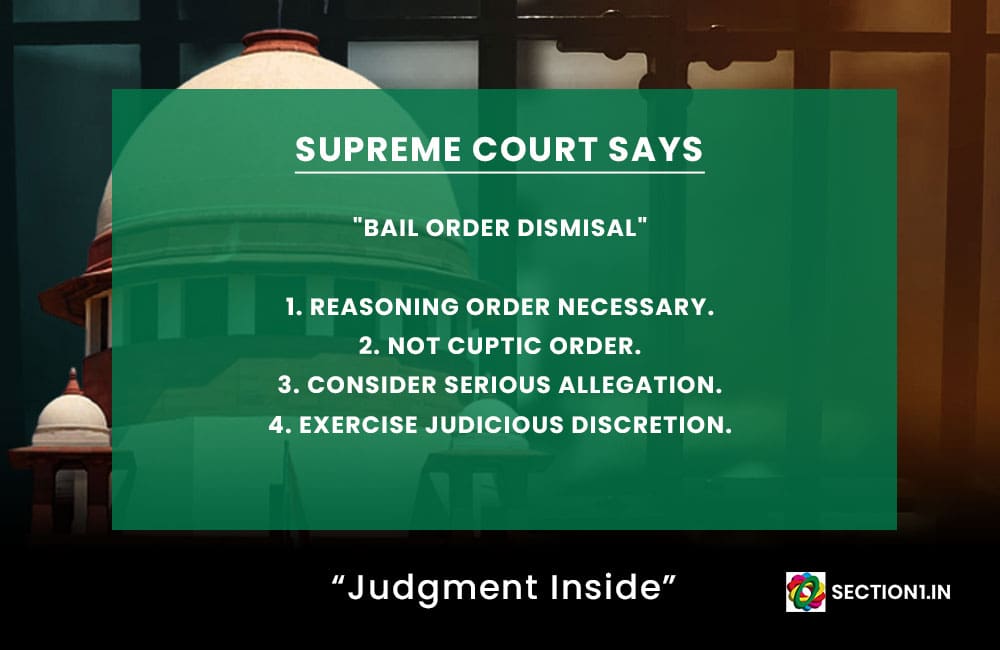26. We have extracted the relevant portions of the impugned orders above. At the outset, we observe that the extracted portions are the only portions forming part of the “reasoning” of the High court while granting bail. As noted from the afore-cited judgments, it is not necessary for a Court to give elaborate reasons while granting bail particularly when the case is at the initial stage and the allegations of the offences by the accused would not have been crystalised as such. There cannot be elaborate details recorded to give an impression that the case is one that would result in a conviction or, by contrast, in an acquittal while passing an order on an application for grant of bail. At the same time, a balance would have to be struck between the nature of the allegations made against the accused; severity of the punishment if the allegations are proved beyond reasonable doubt and would result in a conviction; reasonable apprehension of the witnesses being influenced by the accused; tampering of the evidence; the frivolity in the case of the prosecution; criminal antecedents of the accused; and a prima facie satisfaction of the Court in support of the charge against the accused.
27. Ultimately, the Court considering an application for bail has to exercise discretion in a judicious manner and in accordance with the settled principles of law having regard to the crime alleged to be committed by the accused on the one hand and ensuring purity of the trial of the case on the other.
28. Thus, while elaborating reasons may not be assigned for grant of bail, at the same time an order de hors reasoning or bereft of the relevant reasons cannot result in grant of bail. It would be only a non speaking order which is an instance of violation of principles of natural justice. In such a case the prosecution or the informant has a right to assail the order before a higher forum.
PARTY: BRIJMANI DEVI vs. PAPPU KUMAR & ANR – CRIMINAL APPEAL NO. OF 2021 (ARISING OUT OF SLP (CRL.) NO.6335 OF 2021) – 17.12.2021 – 3 judge Bench.
URL: Download
Files :
Source: Download



